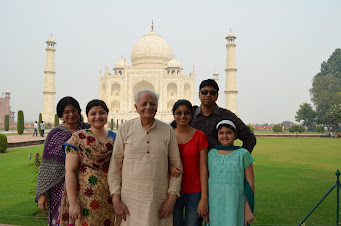FOLKLORE
“Do people really find true love?” Walter asks
his father, the innocence characteristic of a four-year-old gleaming in his
eyes. His father blinks rapidly, but Walter hasn’t developed the sensitivity to
grasp and understand subtle body language. After some trepidation, his father
replies, “Yes, they do, with time and patience. You will, too.”
Unfortunately, there is a good, if that is the
appropriate word to be used, chance Walter will not find true love. It
is a very specific emotional experience and is not abundantly available. In his
father’s defense, crushing the hopes of a child is not a particularly
attractive alternative, so I understand why he said what he said. What is
worrying, is that even when he grows up, movies and television series will
continue to feed the true love narrative to him. You know, some of us
are just not the main characters, but we are always led to believe that we are.
After all, fairytales are very telling of the reality we live in.
“Why does Quill want to grow older and leave
the house? Is he not safer living with us?” Amore, only nine, asks her grandmother
after her elder brother throws a fit. Smiling ear to ear, the corners of her
eyes crinkling, she says, “Amore, he wants to be free. To make his own
decisions, to earn money and spend it his own way. He seeks independence.”
“I will never work at a place that treats me
badly. My job will be my passion.” Twelve-year-old Sasha declares adamantly, as
her older cousins complain about their nine-to-five schedules. They look at her
sadly but are hesitant to tell her the reality. And so, they nod.
As a child, it is difficult to understand why
millions of people are earning money doing something they hate. Rationally, it
makes no sense. Rationally, they should pursue their hobbies as a career, and
live contently. At this point, someone should tell children about the thousands
of writers, musicians, painters, entrepreneurs who tried it and failed. Agreed,
a dreadful, monotonous job is not their first choice, but our life simply isn’t
as easy as making our passion our source of living.
“Friends. Money. Stability. Love. Is that all I
need to be happy?” Diara questions at their mental wellbeing session in Year 12
of school. The speaker is impressed that at her age, Diara has it figured out
and wants to encourage her. “Good relationships and stability are sufficient to
make you happy. As you grow older, it will fall into place. You’ll see.”
Would she, though? Don’t get me wrong. As
someone who relies on my support system heavily, I absolutely understand its
importance. But is it enough? Is it even consistent? Is it available to
everyone? Also, what is stability? Is life ever stable? Who answers these
questions, truthfully, before it’s too late and you’re faced with crisis?
Experience may be the best teacher, but it does
not need to be painful because you’ve been misled during your formative years. All
the stories are, in fact, not true. It is folklore. It has been passed down
generations, the same chapters, a different order. You’re told every aspect of
life comes together like a puzzle manufactured to be solved by amateurs. You’re
not told that there are always a few pieces missing, a few that belong to
another set and those that fit but make the tapestry look distorted. It is only
when you’re in your twenties and thirties and nothing is going your way, that
you wish it had been different. No lies, no picture perfect worlds.
“Coddle me so that I do not grow terrified of
living my own life but feed me the bitter truth such that I am not left broken
and lost.”



Awesome writing, sweetheart ❤️
ReplyDeleteI agree. Wholeheartedly. 👍
In seeking perfection, we forget to savour the blessing of what we do have.
Getting a (small) taste of reality, early in life, would certainly make one better prepared to accept the imperfections of life.
Thank you!!! :))
DeleteAn inescapable truth, expressed beautifully!
ReplyDeleteExperience may be the ultimate teacher, but guidance should not be forsaken just for the sake of the hard way. After all, isn't that the very basis of the respect we give to our elders? Wonderfully expressed.
ReplyDelete